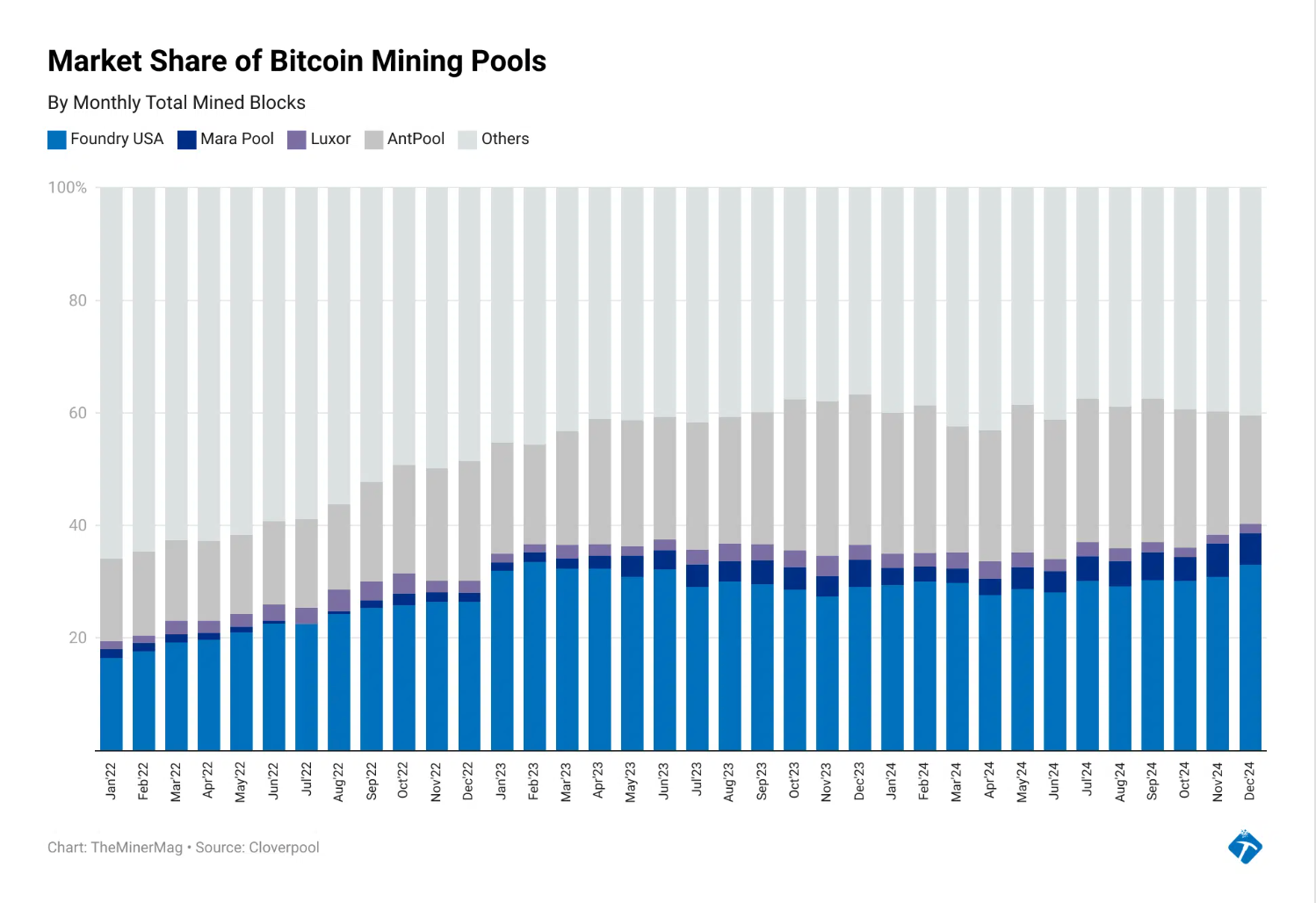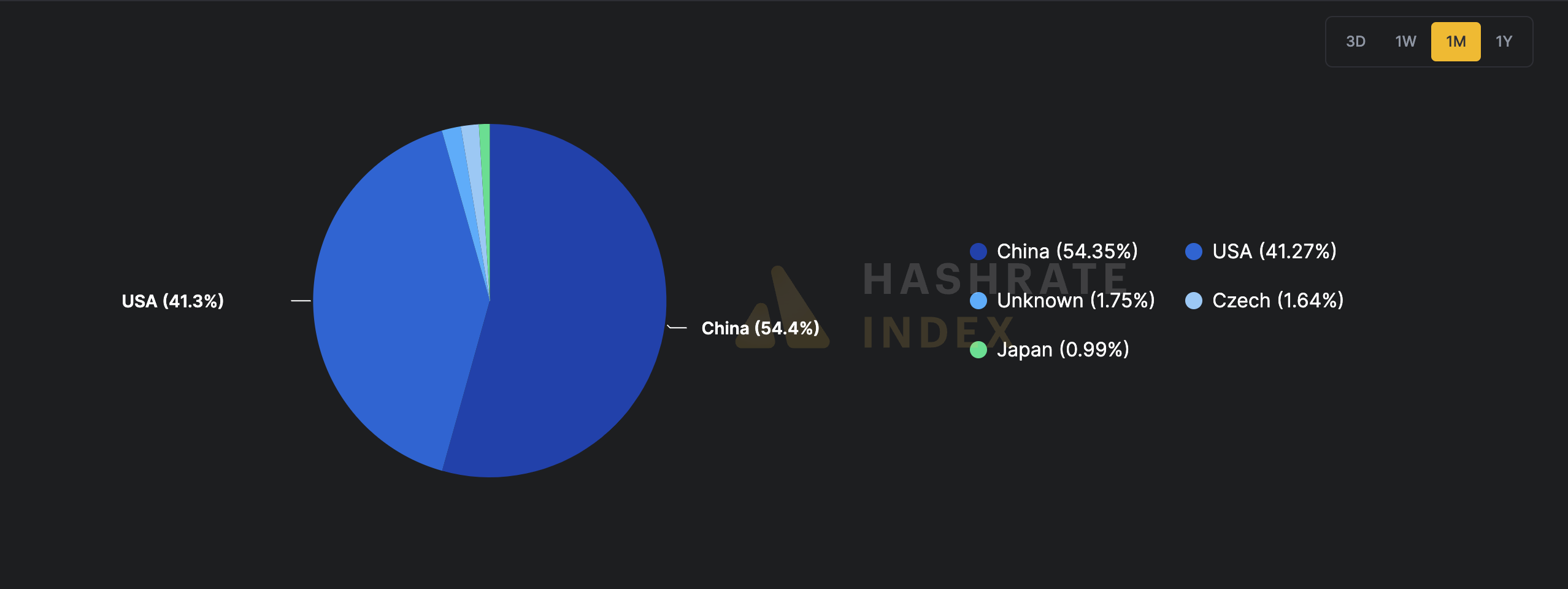US Dominates Over 40% of Global Bitcoin Hashrate: Report
The United States has solidified its position as a global leader in Bitcoin mining, accounting for over 40% of the total Bitcoin network’s hashrate by the end of 2024, according to a report by TheMinerMag. This milestone underscores the nation’s growing influence in securing the Bitcoin protocol, as two US-based mining pools — Foundry USA and MARA Pool — collectively mined 38.5% of all blocks during the year.
US-Based Mining Pools Lead the Pack
Foundry USA emerged as the largest Bitcoin mining pool globally, expanding its hashrate from 157 exahashes per second (EH/s) in early 2024 to a remarkable 280 EH/s by December. This growth enabled Foundry to command 36.5% of the total network hashrate.
Meanwhile, MARA Pool contributed 32 EH/s, representing 4.35% of the global hash power. Despite the dominance of US-based pools, China-based mining pools continue to control the majority of the global hashrate, leveraging creative workarounds to sustain operations.
Chinese Mining Pools Maintain Presence Despite Ban
China’s 2021 ban on cryptocurrency activities has not deterred its mining pools from holding a significant share of the global hashrate. As of September 2024, Chinese mining pools controlled 55% of global hash power, according to CryptoQuant CEO Ki Young Ju.

Chinese miners circumvent the ban by utilizing virtual private networks (VPNs) to mask their locations and connect to mining pools. Peer-to-peer applications also allow users to bypass China’s national firewall to engage in cryptocurrency exchanges.
This decentralized participation in mining pools complicates efforts to accurately gauge the true geographic distribution of Bitcoin miners. Mining pools headquartered in one country often rely on contributions from miners in other regions, further blurring jurisdictional boundaries.
Rising Concerns Over Hashrate Centralization
The concentration of Bitcoin’s computing power among a few dominant mining pools has raised alarms about the potential risks to decentralization. Rajiv Khemani, CEO of mining chip manufacturer Auradine, described Bitcoin decentralization as a national security issue in an October 2024 interview with Cointelegraph.

Khemani emphasized that critical mining infrastructure, such as application-specific integrated circuits (ASICs), should not be concentrated in a single jurisdiction to mitigate supply chain risks. He also warned that allowing any one country to control the majority of Bitcoin’s network hashrate threatens the neutrality of the decentralized currency.
Looking Ahead
The debate over hashrate dominance continues to highlight the delicate balance between efficiency and decentralization in Bitcoin mining. As the US strengthens its foothold in the industry, calls for broader distribution of mining power grow louder to preserve the integrity of the Bitcoin network.
Keywords: Bitcoin mining, US Bitcoin hashrate, Bitcoin decentralization, Foundry USA, MARA Pool, Chinese mining pools, Bitcoin network security.
Share This





